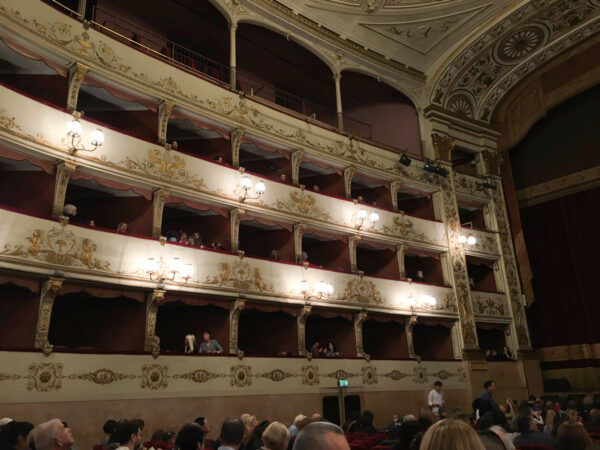Teatro della Pergola, one of Florence’s most prestigious and historic theatres, is facing a significant downgrade in its official classification that could result in the loss of its status as a National Theatre.
The possible declassification follows a drastic drop in the score assigned by a special commission of the Ministry of Culture. In the latest evaluation, the score attributed to the Fondazione Teatro della Toscana — which oversees the Pergola along with Teatro di Rifredi and Teatro Era in Pontedera — plummeted from 29 to under 10 points, well below the threshold required to maintain National Theatre status.
The downgrade would not only impact the theatre’s visibility and institutional role but could lead to a 20% reduction in national funding — a cut estimated at around €400,000 per year.
In a highly unusual move, three members of the evaluation committee representing local institutions (regions, provinces and municipalities) resigned in protest, questioning the motivations and transparency behind the decision. They described the cut as disproportionate and lacking clear justification.
The official communication from the Ministry of Culture is expected in the coming days, possibly by the end of June, but no confirmation has been released as of today. Depending on the form of the notice — either a formal letter or an internal report — the Fondazione may have several options: requesting a review of the evaluation, appealing the decision before an administrative court, or applying for recognition as a “City Theatre”, a designation that would still grant access to public funds, albeit reduced.
Beyond the financial implications, the loss of national status could have long-term effects on the theatre’s governance. National Theatres are subject to stricter rules, including the separation of the roles of general director and artistic director — a safeguard that may no longer apply in the event of a downgrade.
Founded in 1656, Teatro della Pergola is considered the oldest theatre in Italy with a permanent roof and a structure designed exclusively for theatrical performances. It was one of the first to introduce the architectural innovation of box seating and quickly became a model for theatres across Europe.
Over the centuries, it has hosted the premieres of works by great composers such as Luigi Cherubini and Giuseppe Verdi, including Macbeth in 1847. It was also the venue where audiences first heard many of Italy’s finest actors and playwrights, from Eleonora Duse to Eduardo De Filippo.
Today, it remains a symbol of Florentine identity and cultural vitality — not just for its past, but for its role as a contemporary centre of theatrical production and education.

